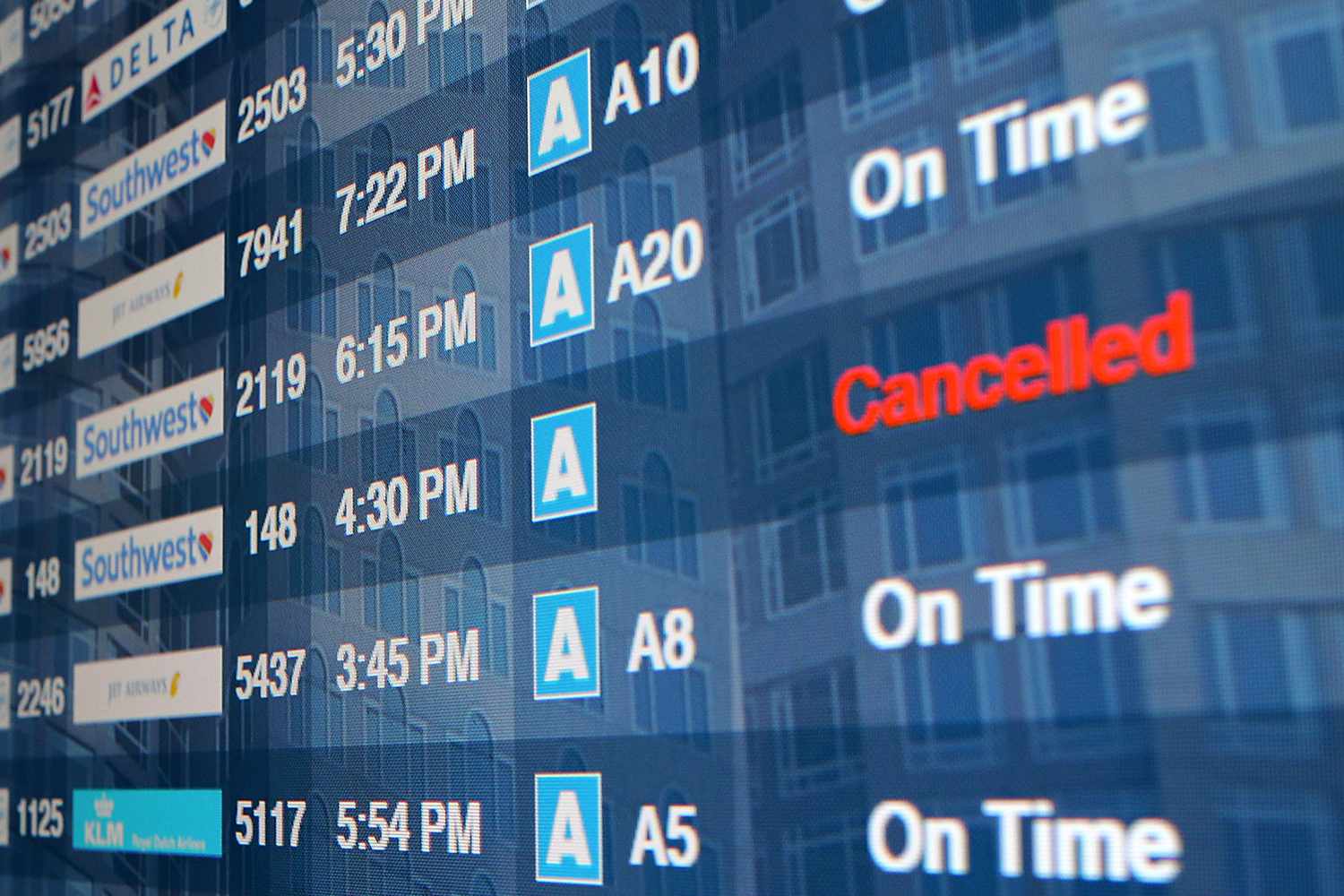
Why do flights get canceled? Whether you're a frequent flyer or an occasional traveler, flight cancellations can be a major headache. Understanding the reasons behind flight cancellations can help you better prepare for your journey. From weather conditions to technical issues, airlines face numerous challenges that can disrupt schedules. Sometimes, air traffic control restrictions or crew shortages play a role. Mechanical problems and security concerns also contribute to delays. Even overbooking can lead to cancellations. Knowing these factors can help you stay informed and reduce stress when your travel plans hit a snag. Let's dive into the top 26 reasons why flights get canceled.
Understanding Flight Cancellations
Flight cancellations can be frustrating and confusing. Knowing some key facts can help you navigate these situations better. Here are some interesting and useful facts about flight cancellations.
-
Weather is the Leading Cause
Weather conditions, such as storms, fog, or hurricanes, are the primary reasons flights get canceled. Airlines prioritize safety over schedules. -
Mechanical Issues
Aircraft maintenance problems can lead to cancellations. Safety checks are crucial, and any detected issue can ground a plane. -
Air Traffic Control Restrictions
Sometimes, air traffic control imposes restrictions due to congestion or emergencies, causing flights to be canceled. -
Crew Availability
Flights can be canceled if the crew is unavailable. This can happen due to scheduling errors, illness, or legal rest requirements. -
Airport Strikes
Strikes by airport staff, such as baggage handlers or security personnel, can disrupt operations and lead to cancellations.
Passenger Rights and Compensation
Understanding your rights as a passenger can make dealing with cancellations less stressful. Here are some important facts about what you're entitled to.
-
EU Regulation 261/2004
In the European Union, passengers are protected by Regulation 261/2004, which mandates compensation for cancellations under certain conditions. -
U.S. Department of Transportation Rules
In the United States, airlines must refund passengers for canceled flights, regardless of the reason. -
Rebooking Options
Airlines often offer rebooking on the next available flight at no extra cost. Sometimes, they might even book you on a different airline. -
Hotel and Meal Vouchers
If a cancellation leaves you stranded overnight, airlines may provide hotel accommodations and meal vouchers. -
Travel Insurance
Travel insurance can cover expenses related to cancellations, such as hotel stays and rebooking fees.
How Airlines Handle Cancellations
Airlines have specific protocols for handling cancellations. Knowing these can help you understand what to expect.
-
Automated Notifications
Many airlines use automated systems to notify passengers of cancellations via email, text, or app notifications. -
Priority Rebooking
Frequent flyers or premium ticket holders often get priority when rebooking canceled flights. -
Standby Lists
Airlines may place you on a standby list for the next available flight. This means you could get a seat if someone else cancels. -
Compensation Policies
Each airline has its own compensation policy. Some may offer miles or vouchers in addition to refunds. -
Customer Service Support
Airlines provide customer service support to help passengers rebook flights and understand their options.
Tips for Dealing with Cancellations
Being prepared and knowing how to handle cancellations can save you time and stress. Here are some practical tips.
-
Check Flight Status Regularly
Keep an eye on your flight status, especially during bad weather or busy travel seasons. -
Book Direct Flights
Direct flights reduce the risk of cancellations due to missed connections. -
Travel Early in the Day
Morning flights are less likely to be canceled. Delays tend to accumulate as the day progresses. -
Join Frequent Flyer Programs
Membership in frequent flyer programs can give you priority rebooking and other perks. -
Pack Essentials in Carry-On
Always pack essentials like medications, a change of clothes, and chargers in your carry-on in case of cancellations.
Interesting Facts and Statistics
Some facts about flight cancellations might surprise you. Here are a few intriguing statistics and tidbits.
-
Holiday Season Peaks
Cancellations peak during the holiday season due to increased travel and unpredictable weather. -
Regional Differences
Some regions experience more cancellations than others. For example, flights in the northeastern U.S. are more prone to weather-related cancellations. -
Airline Rankings
Some airlines have better records for on-time performance and fewer cancellations. Researching these can help you choose more reliable carriers. -
Technological Advances
Advances in technology, such as better weather forecasting and improved aircraft maintenance, have reduced the number of cancellations over the years. -
Passenger Advocacy Groups
There are organizations dedicated to helping passengers understand their rights and seek compensation for cancellations. -
Environmental Impact
Cancellations can reduce the environmental impact by preventing unnecessary flights, though they also lead to increased fuel use for rebooked flights.
Final Take on Flight Cancellations
Flight cancellations can be a real headache, but knowing the facts helps. Airlines cancel flights for various reasons, like weather, mechanical issues, or staffing problems. Understanding your rights as a passenger can make a big difference. You might be entitled to compensation or a refund depending on the situation. Always check your airline's policy and keep important documents handy.
Travel insurance can be a lifesaver, covering unexpected costs. Staying informed and prepared minimizes stress. Use apps and alerts to stay updated on your flight status. Remember, being flexible and having a backup plan can save the day.
Next time you face a cancellation, you'll be ready to handle it like a pro. Safe travels!
Was this page helpful?
Our commitment to delivering trustworthy and engaging content is at the heart of what we do. Each fact on our site is contributed by real users like you, bringing a wealth of diverse insights and information. To ensure the highest standards of accuracy and reliability, our dedicated editors meticulously review each submission. This process guarantees that the facts we share are not only fascinating but also credible. Trust in our commitment to quality and authenticity as you explore and learn with us.


